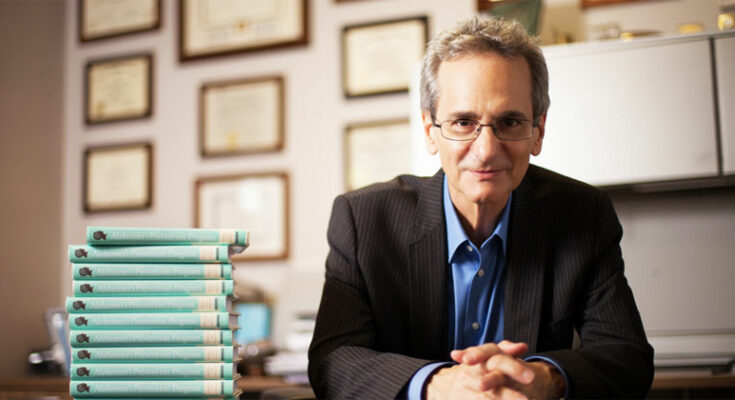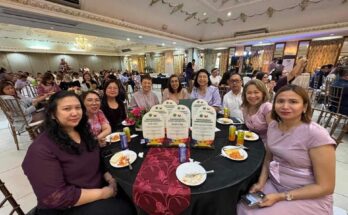By Prof. Gary Small, M.D., Specialist in brain health and aging
Population aging is an increasing challenge worldwide. For many years, the Philippines had been considered a young population. However, a recent study revealed that older Filipinos are expected to account for 10 percent of the population by 2025.
This study of the University of the Philippines Population Institute titled “Future Aging in the Philippines: Demographic Trends, Human Capital and Health Status” found out that Filipinos who are 60 years and over have increased from 3.2 million in 1990 to 4.6 million in 2000, then to 6.2 million in 2010. As of 2015, there are around seven million Filipinos who are senior citizens, or aged 60 and above. In between 2025 to 2030, the study cautioned, the country’s population would start to age.
This makes it especially important for Filipinos to adopt measures that can help reduce the impacts of aging. The Philippine Department of Health (DOH) is indeed making efforts by discouraging heavy drinking and encouraging physical exercise. Yet it is also important for individuals to act – it is never too early to adopt a lifestyle that will boost your chances of remaining healthy and smart long into your old age.
I have learned much about such lifestyle choices through my research as a professor of psychiatry at the UCLA Semel Institute, US, where I direct the Geriatric Psychiatry Division and the UCLA Longevity Center. Together with my colleagues, I have conducted studies using modern brain scan technology and neuropsychological evaluations, as well as assessments of cardiovascular status, exercise levels, and dietary habits that may strength memory. These plus other research conducted worldwide clearly show that while aging is inevitable, its negative consequences on health can be slowed down with the help of good nutrition and both physical and mental exercise.
For nutrition, I advocate a meal plan similar to the Mediterranean diet – which is not only good for the brain, but is also healthy overall since it helps to protect the heart and control body weight. It includes antioxidant fruits such as berries and raisins, along with antioxidant vegetables like spinach and broccoli; foods rich in omega-3 fats, which include fish and walnuts; healthy proteins such as chicken breast, fish, and low-fat yogurt; and whole grains like brown rice and oatmeal.
Spices and herbs also add potential health benefits, through their antioxidant and other effects. Filipinos love garlic, and it has been shown to lower cholesterol levels and blood pressure. Ginger may ease the pain of people suffering from arthritis, and several herbs and spices are under study for their potential cancer-fighting properties.
A good diet will not only boost your mental and physical health as you age, but will also help you look and feel good. And it doesn’t mean avoiding foods and snacks you might enjoy. I have a sweet tooth, which occasionally gets the best of me. When that happens, I remind myself that moderation is the key — and chocolate does contain brain-healthy antioxidants.
Exercise is also vital for slowing the effects of aging. Multiple studies have found it can prolong life and reduce disease and disability in old age. And while it’s best to remain physically active throughout your life, getting moving can benefit you at any age. One study found that men who had been sedentary but started exercising after the age of 45 enjoyed a 24% lower death rate than men who remained inactive.
By exercising, you reduce your chances of multiple diseases – including cancer, stroke, heart disease, and diabetes. It also safeguards your brain from other effects of aging. In a study I conducted with my UCLA research group, we found that if people performed daily physical exercise along with healthy diet and mental exercise, they experienced significant improvements in their memory ability in just two weeks.
Note, too, that exercise does not have to mean a brutal workout in a gymnasium, or running a marathon. A brisk 30-minute walk each day will ensure cardiovascular conditioning that gets your heart pumping oxygen and nutrients to your brain cells, so those cells sprout branches, communicate more effectively and remain healthier longer.
Remember to also exercise your brain. Keep yourself mentally active, perhaps with a daily routine. For instance, every morning after reading the newspaper I do crossword puzzles and Sudoku.
Whatever your age, a combination of good nutrition and physical and mental exercise will benefit your life in multiple ways. And you will boost your chances of living life to the full, well into your golden years.
Dr. Gary Small is the author of several popular books on brain health and aging (“The Memory Bible”, “The Memory Prescription”, “The Longevity Bible”, “iBrain”), which have been translated into two dozen languages. He is also a member of Herbalife Nutrition Advisory Board (NAB), which is comprised of leading experts in the fields of nutrition and health who help inform, educate and train Independent Herbalife Members and members of the public on the principles of nutrition, physical activity and healthy lifestyle. Dr. Small will be in the country as the main speaker in the 2016 Asia Pacific Wellness Tour in April. [Sponsored post]
About Herbalife
Herbalife is a global nutrition company that has been changing people’s lives with great products since 1980. Our nutrition, weight-management, energy and fitness and personal care products are available exclusively to and through dedicated Independent Herbalife Members in more than 90 countries. We are committed to fighting the worldwide problems of poor nutrition and obesity by offering high-quality products, one-on-one coaching with a Herbalife member and a community that inspires customers to live a healthy, active life.
We support the Herbalife Family Foundation (HFF) and its Casa Herbalife programs to help bring good nutrition to children in need. We also sponsor more than 190 world-class athletes, teams and events around the globe, including Cristiano Ronaldo, the LA Galaxy, Western Sydney Wanderers FC and champions in many other sports.
The company has over 7,800 employees worldwide, and its shares are traded on the New York Stock Exchange (NYSE: HLF) with net sales of US$4.5 billion in 2015. To learn more visit Herbalife.com.



